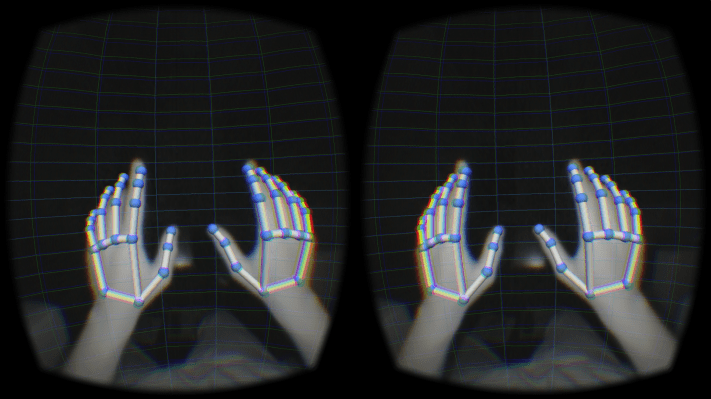Headset-based VR and AR may be a bit slower out of the gates than many had hoped, but investors are still pouring money into startups looking to change how consumers interact with the digital world.
Leap Motion, a hand-tracking company based in San Francisco, has raised $50 million in Series C funding led by clients advised by J.P. Morgan Asset Management, the WSJ reports. The startup has raised nearly $95 million to date.
The startup, backed by some of Silicon Valley’s top venture firms, including Andreessen Horowitz and Founders Fund, has long billed its hand-tracking technologies as a replacement for the venerated mouse and keyboard, but the seven-year-old company has struggled to find interface problems for its technology to solve.
Three-dimensional hand-tracking always seemed to be an ill fit for interacting with objects projected on 2D desktop displays, but now with virtual and augmented reality, Leap Motion is aiming to master human-computer interaction on a platform that no one has really mastered to date.
Gathering human input for VR/AR headsets has been a tough challenge for hardware manufacturers already steeped in tough challenges, but Leap Motion has been slow to attract manufacturer support despite the sophistication of their hand-tracking platform, which reproduces a virtual skeletal model of the hand using computer vision that updates depending on a user’s hand positions.
Gaming-oriented VR companies like HTC, Sony and Facebook’s Oculus have opted for traditional handheld controllers on current generation hardware, but Oculus has already shown that it is experimenting with glove-like controllers. The companies behind AR headsets like HoloLens, Meta and Magic Leap have meanwhile seemed to default to hand-tracking tech, though each appears to be building its own solutions. So far, the company’s most prominent partnership success has been one with Qualcomm on a headset reference design for OEMs.
The company’s focus has largely been centered on consumers, but in a blog post announcing today’s funding the company detailed that it will be looking to “broaden its reach into new commercial and enterprise applications including education, healthcare, and industrial training simulation.” The company also announced it will be opening a new office in Shanghai.
